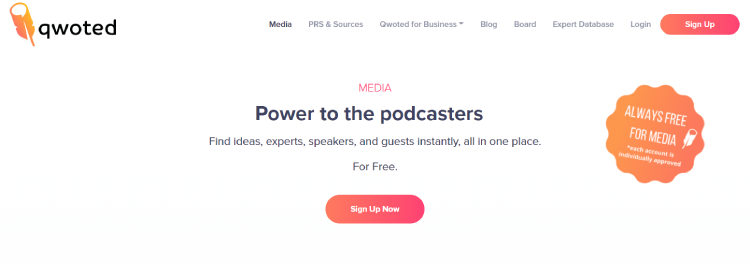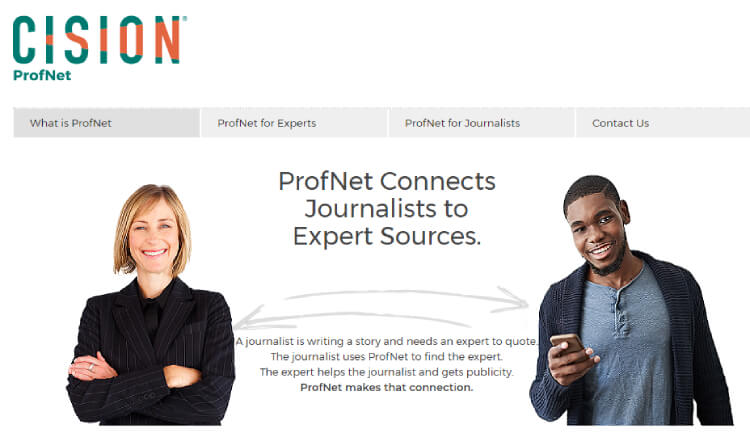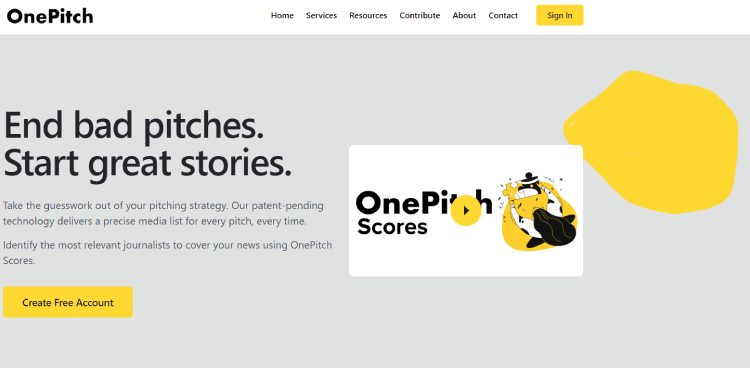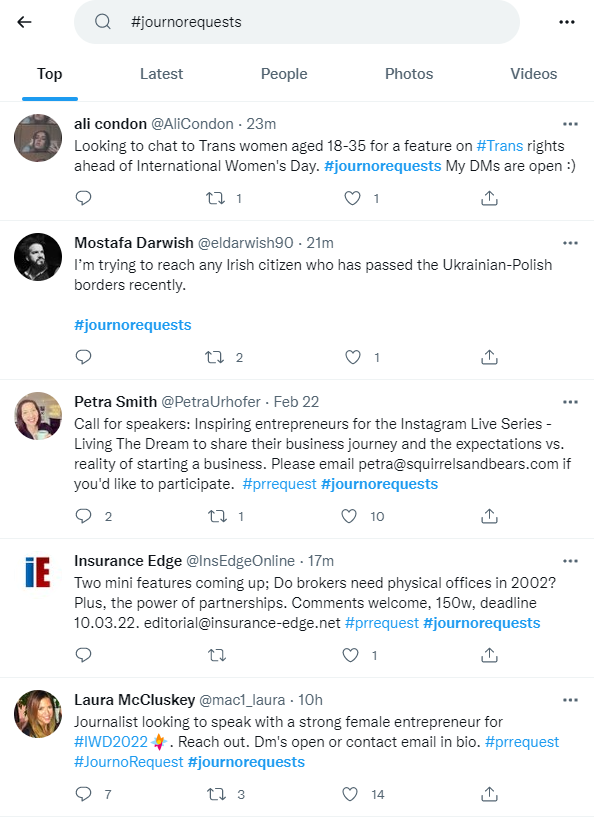
Help A Reporter Out (HARO) is a fantastic resource for connecting journalists with the industry subject matter experts. It is considered to be an amazing link building for gaining online visibility.
HARO has a million subscribers and hence you may have to compete against numerous pitches for the same query. Since there are over a million subscribers, it seems like journalists receive dozens of pitches for every request, dramatically reducing the success rate of your HARO pitches.

This is why in addition to replying to journalist queries, it’s important to also proactively pitch journalists and reporters who have written stories related to your industry or company to land press coverage. And HARO is one of the best platforms for doing that.
6 Best HARO Alternatives
We understand that building online credibility is really hard and this is the reason why HARO alternatives are emerging. We have curated a list of 6 best Help A Reporter Out alternatives that you can use for building the online credibility of your business.
Qwoted is an amazing tool that connects journalists to expert sources, just like HARO. The main difference between Qwoted and HARO is that, Qwoted spares journalist’s inbox from spam.

Anyone who has used HARO will know that a query can clutter your inbox with pitches to review. With Qwoted, you can mute conversations when you get the pitch you need.
Signing up to Qwoted is free, but each account has to get individually approved before joining this platform. For quality control, Qwoted assures that the sources are legit and credible.
Qwoted also has a Pitch Intelligence feature that provides insights on whether the reporter has engaged with someone else already (so that you do not waste your time on a particular pitch). This feature is available for those who purchase the paid plan.
Pricing: Qwoted is a free tool with a basic plan allowing you to send 3 pitches per month. However, for additional features, you will have to go for its paid plan starting $149.99 per month.
Similar to HARO, SourceBottle is a platform that connects journalists with expert sources. It notifies every time a journalist looks for insights and information in your field of expertise.

Unlike HARO, you receive only two “Drink Up” emails a day containing queries on the topics, categories, and geographics that you might have chosen.
You can request giveaways, goody bags, products to review, and case studies to provide your expert opinions and insights to include in media pitches.
This is very beneficial for PR professionals. The major drawback of this platform is that its search is not very efficient and its geographic locations are limited to the United States, Canada, Australia, UK, New Zealand, and Ireland.
Pricing: SourceBottle is a free platform, but it also has paid plans ranging from $5.95 to $95 per month which allows you to request giveaways.
ProfNet connects subject matter experts to journalists who are looking for expert insights in their news release. It is specifically built for PR professionals who are looking for media opportunities to pitch their companies to journalists.

ProfNet is also owned by Cision just like HARO. There are some aspects of ProfNet that excel over HARO, such as ProfNet sending emails throughout the day based on your frequency preferences, while HARO is limited to three emails a day.
HARO is evaluated by the outlet’s publishers and ProfNet is vetted by the journalists.
Pricing: ProfNet’s PR newswire services for journalists are free for media professionals and journalists, but paid for the experts who wish to respond.
The subscriptions start from $1,650 annually for a single industry.
PitchRate helps in finding experts in a field using keywords. This platform also lists all the PR requests and you can pitch directly to the journalists just like HARO.

PitchRate rates your pitches on the scale of 1 to 5 stars, which makes it easy for the journalists to filter the best resources for their article or story.
However, the ratings are given upon how well the keywords in the pitches match the tags that have been set by the journalists. As these ratings are not given by any human, there are chances of inaccuracy.
Also, the number of opportunities for the sources are limited when compared to the HARO platform.
Pricing: Free
OnePitch platform connects journalists and tech-savvy PR professionals for building relationships and earning media coverage.

This is a great alternative to HARO specifically for tech professionals and small businesses. OnePitch allows you to track your pitches and also create a custom media list.
Unlike HARO, OnePitch uses Artificial Intelligence (AI) to assist you in creating effective pitches. Hence, it is known as the next-gen AI for PR pros.
Once you submit your pitch, the AI analyzes your pitch along with its data to give you a curated media list. If you belong to the tech industry, this platform is perfect for gaining media coverage.
Pricing: Free

Do you need help with Link Building?
Contact us today! We offer a variety of services that can help improve your website’s ranking on search engines.
When you search the hashtags #journorequest, #RadioGuestList, and #PRrequest on Twitter, you will find many queries from journalists and writers seeking expert sources for their upcoming articles or story.

The major benefit of these hashtags over HARO is that all requests are not seen by huge audiences and hence you can face less competition.
For narrowing down the results, along with the hashtags you can also mention the related keywords to your industry.
The only drawback to this platform is that not every journalist may seek sources from Twitter, and if you are looking to get featured in high authority publications, you will have to filter writers according to their ranked websites.
Pricing: Free
Tips For Selecting The Best Haro Alternative
Undoubtedly HARO is the most preferred platform for building relationships with journalists and earning media coverage for your brand.
But the other alternatives mentioned above are also worth exploring, depending on the features you need.
Many platforms offer free trial versions for a limited period of time. Take good advantage of this feature and try pitching queries through various platforms before investing in one.
Also, do consider other features such as pricing, keyword alerts, number of accounts, and easy user interface of each alternative platform.
Final Thoughts
As we have seen above, there are many reputed alternatives to HARO. Sign up for different services and start answering queries according to your expertise. Eventually, you will figure out which alternative HARO platform is more suitable for your business in building online visibility.


